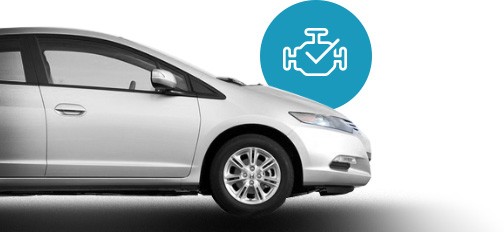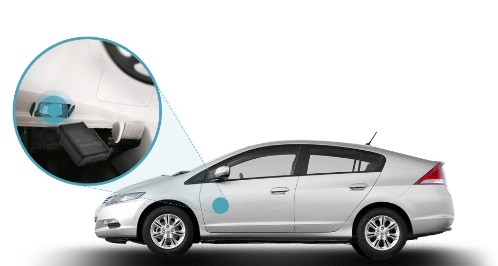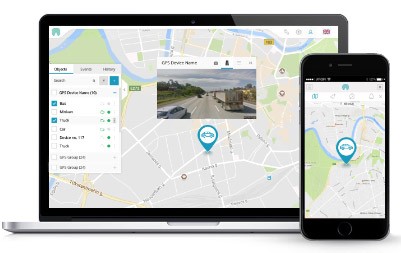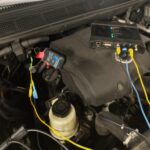Obdii 3g Vehicle Gps Trackers offer real-time vehicle monitoring, advanced diagnostics, and anti-theft protection, ensuring peace of mind for vehicle owners and fleet managers. At CARDIAGTECH.NET, we understand the importance of staying connected to your vehicle and offer cutting-edge solutions to meet your tracking needs. Discover how this powerful tool can enhance vehicle security, optimize fuel consumption, and streamline vehicle management with enhanced vehicle telematics and remote diagnostics.
1. Understanding the Obdii 3G Vehicle GPS Tracker
An OBDII 3G vehicle GPS tracker is a compact device that plugs into your vehicle’s OBDII (On-Board Diagnostics II) port to provide real-time location tracking, vehicle diagnostics, and various other functionalities. These trackers utilize 3G cellular networks to transmit data, ensuring reliable and widespread connectivity. This offers a seamless integration into your vehicle’s system, providing a comprehensive vehicle management solution.
1.1 What is OBDII?
OBDII, or On-Board Diagnostics II, is a standardized system used in most vehicles manufactured after 1996. It provides access to a vehicle’s diagnostic data, allowing mechanics and vehicle owners to monitor various parameters such as engine performance, emissions, and other critical functions. As defined by the Environmental Protection Agency (EPA), OBDII ensures that vehicles meet specific emission standards and provides a standardized way to access vehicle health information.
1.2 How Does the 3G GPS Tracker Work?
The 3G GPS tracker connects to the vehicle’s OBDII port, drawing power and accessing vehicle data. It uses GPS (Global Positioning System) to determine the vehicle’s precise location and transmits this data via the 3G cellular network to a tracking platform. This platform allows users to monitor the vehicle’s location, speed, and other parameters in real-time via a computer, smartphone, or tablet. Data transmission is encrypted to ensure privacy and security, preventing unauthorized access to sensitive vehicle information.
![]() GPSWOX OBDII Tracker
GPSWOX OBDII Tracker
1.3 Key Components of an Obdii 3G Tracker
- OBDII Connector: Plugs directly into the vehicle’s OBDII port.
- GPS Module: Determines the vehicle’s location using GPS satellites.
- 3G Cellular Module: Transmits data to the tracking platform via cellular networks.
- Microprocessor: Processes data and manages communication between components.
- Internal Antenna: Facilitates GPS and cellular signal reception.
- Backup Battery: Provides power in case the vehicle’s battery is disconnected.
2. Benefits of Using an Obdii 3G Vehicle GPS Tracker
Using an OBDII 3G vehicle GPS tracker offers numerous advantages for both individual vehicle owners and fleet managers. These benefits range from enhanced security and anti-theft measures to improved vehicle diagnostics and optimized fleet operations. Let’s explore these advantages in detail:
2.1 Real-Time Vehicle Tracking
One of the primary benefits of an OBDII 3G GPS tracker is the ability to monitor your vehicle’s location in real-time. Whether you’re managing a fleet of vehicles or simply want to keep an eye on your personal car, real-time tracking provides valuable insights.
- Live Location Updates: Track your vehicle’s current location with up-to-the-minute updates.
- Geofencing: Set up virtual boundaries and receive alerts when your vehicle enters or exits these zones.
- Route History: Review past routes, including start and end points, travel times, and distances.
2.2 Enhanced Security and Anti-Theft
Vehicle theft is a significant concern for many vehicle owners. An OBDII 3G GPS tracker can significantly enhance your vehicle’s security and provide anti-theft capabilities.
- Theft Alerts: Receive immediate notifications if your vehicle is moved without authorization.
- Remote Immobilization: Some trackers allow you to remotely disable the vehicle’s engine, preventing theft.
- Recovery Assistance: Work with law enforcement to quickly locate and recover your vehicle in case of theft.
2.3 Vehicle Diagnostics
OBDII 3G GPS trackers can access and transmit valuable diagnostic data from your vehicle’s computer. This information can help you identify potential issues early and prevent costly repairs.
- DTC (Diagnostic Trouble Codes): Receive alerts for any diagnostic trouble codes, indicating potential mechanical issues.
- Engine Performance Monitoring: Track parameters such as engine temperature, RPM, and fuel consumption.
- Maintenance Reminders: Set up reminders for routine maintenance tasks like oil changes and tire rotations.
 Car Diagnosis
Car Diagnosis
2.4 Fuel Efficiency Monitoring
Monitoring fuel consumption is crucial for both individual vehicle owners and fleet managers looking to reduce costs. An OBDII 3G GPS tracker can provide detailed insights into your vehicle’s fuel efficiency.
- Fuel Consumption Tracking: Monitor fuel usage in real-time and identify areas for improvement.
- Driving Behavior Analysis: Analyze driving habits such as speeding, hard braking, and rapid acceleration, which can impact fuel efficiency.
- Idle Time Monitoring: Track how long your vehicle idles, which can waste fuel and increase emissions.
2.5 Improved Fleet Management
For businesses that manage a fleet of vehicles, an OBDII 3G GPS tracker can significantly improve operational efficiency and reduce costs.
- Driver Behavior Monitoring: Track driver behavior such as speeding, harsh braking, and excessive idling.
- Route Optimization: Optimize routes to reduce fuel consumption and travel times.
- Maintenance Scheduling: Schedule maintenance based on actual vehicle usage, preventing breakdowns and extending vehicle lifespan.
- Compliance Reporting: Generate reports for regulatory compliance, such as hours of service (HOS) for commercial drivers.
3. Key Features to Look for in an Obdii 3G Vehicle GPS Tracker
When selecting an OBDII 3G vehicle GPS tracker, it’s essential to consider the features that best meet your needs. Here are some key features to look for:
3.1 Real-Time Tracking Accuracy
The accuracy of the GPS tracking is critical for effective vehicle monitoring. Look for a tracker that offers high-precision GPS positioning and frequent location updates.
- GPS Chipset: Ensure the tracker uses a high-quality GPS chipset for accurate positioning.
- Update Frequency: Choose a tracker that provides frequent location updates, ideally every few seconds.
- Coverage Area: Verify that the tracker’s GPS coverage area meets your geographical needs.
3.2 Cellular Connectivity
Reliable cellular connectivity is essential for transmitting data from the tracker to the monitoring platform. Consider the following factors:
- 3G Network Support: Ensure the tracker supports 3G cellular networks for reliable data transmission.
- Coverage Area: Verify that the cellular coverage area meets your geographical needs.
- Data Usage: Understand the tracker’s data usage and choose a data plan that meets your requirements.
3.3 Vehicle Diagnostics Capabilities
The ability to access and interpret vehicle diagnostic data is a valuable feature of an OBDII 3G GPS tracker.
- DTC Support: Ensure the tracker supports a wide range of diagnostic trouble codes (DTCs).
- Data Logging: Choose a tracker that logs and stores diagnostic data for later analysis.
- Alerting: Look for a tracker that provides alerts for critical diagnostic issues.
3.4 User-Friendly Tracking Platform
The tracking platform is where you’ll access and analyze the data collected by the tracker. A user-friendly platform is essential for effective vehicle management.
- Intuitive Interface: Choose a platform with an easy-to-navigate interface.
- Customizable Reports: Look for a platform that allows you to generate custom reports based on your specific needs.
- Mobile App Support: Ensure the platform offers a mobile app for convenient access on your smartphone or tablet.
3.5 Alerts and Notifications
Timely alerts and notifications can help you stay informed about your vehicle’s status and potential issues.
- Geofence Alerts: Receive alerts when your vehicle enters or exits predefined geofences.
- Speeding Alerts: Get notified when your vehicle exceeds a specified speed limit.
- Maintenance Alerts: Set up reminders for routine maintenance tasks.
- Theft Alerts: Receive alerts if your vehicle is moved without authorization.
3.6 Battery Backup
A battery backup ensures that the tracker continues to function even if the vehicle’s battery is disconnected.
- Battery Life: Check the battery life of the backup battery to ensure it meets your needs.
- Alerting: Look for a tracker that provides alerts when the backup battery is in use.
3.7 Ease of Installation
OBDII trackers are designed for easy installation, but it’s still important to consider the installation process.
- Plug-and-Play: Choose a tracker that simply plugs into the OBDII port without requiring any additional wiring.
- Installation Instructions: Ensure the tracker comes with clear and easy-to-follow installation instructions.
3.8 Cost and Subscription Fees
Consider the total cost of ownership, including the initial purchase price and any ongoing subscription fees.
- Initial Cost: Compare the prices of different trackers to find one that fits your budget.
- Subscription Fees: Understand the monthly or annual subscription fees and what they include.
- Contract Terms: Review the contract terms to ensure they meet your needs.
4. How to Install and Set Up an Obdii 3G Vehicle GPS Tracker
Installing and setting up an OBDII 3G vehicle GPS tracker is a straightforward process. Here’s a step-by-step guide:
4.1 Locate the OBDII Port
The OBDII port is typically located under the dashboard on the driver’s side of the vehicle. Refer to your vehicle’s owner’s manual if you’re unsure of its exact location.
4.2 Plug in the Tracker
Simply plug the OBDII connector of the tracker into the OBDII port. Ensure it is securely connected.
 Plug & Play
Plug & Play
4.3 Activate the Tracker
Follow the manufacturer’s instructions to activate the tracker. This typically involves registering the device on the tracking platform and setting up your account.
4.4 Configure Settings
Log in to the tracking platform and configure the settings according to your preferences. This may include setting up geofences, alerts, and other notifications.
4.5 Test the Tracker
Take your vehicle for a short drive to ensure the tracker is functioning correctly. Verify that the location updates are accurate and that you are receiving alerts as expected.
5. Practical Applications of Obdii 3G Vehicle GPS Trackers
OBDII 3G vehicle GPS trackers have a wide range of practical applications for individuals, businesses, and government agencies. Here are some examples:
5.1 Personal Vehicle Security
- Anti-Theft Protection: Protect your vehicle from theft with real-time tracking and alerts.
- Teen Driver Monitoring: Monitor teen drivers’ behavior, including speeding, hard braking, and geofence violations.
- Family Safety: Keep track of family members’ vehicles for added safety and peace of mind.
5.2 Fleet Management
- Route Optimization: Optimize routes to reduce fuel consumption and travel times.
- Driver Behavior Monitoring: Improve driver safety and reduce accidents.
- Maintenance Scheduling: Prevent breakdowns and extend vehicle lifespan.
- Compliance Reporting: Generate reports for regulatory compliance.
5.3 Law Enforcement
- Vehicle Recovery: Quickly locate and recover stolen vehicles.
- Surveillance: Monitor suspect vehicles in real-time.
- Asset Tracking: Track valuable assets such as construction equipment and trailers.
5.4 Insurance Industry
- Usage-Based Insurance (UBI): Offer discounted insurance rates based on driving behavior.
- Claims Investigation: Investigate accidents and verify claims.
- Vehicle Recovery: Recover stolen vehicles and reduce insurance losses.
6. Addressing Common Concerns About Obdii 3G Vehicle GPS Trackers
While OBDII 3G vehicle GPS trackers offer numerous benefits, some individuals and businesses may have concerns about their use. Here are some common concerns and how to address them:
6.1 Privacy Concerns
- Data Encryption: Ensure the tracker uses data encryption to protect sensitive information.
- Data Storage: Understand how the data is stored and who has access to it.
- Compliance: Verify that the tracker complies with privacy regulations such as GDPR.
6.2 Security Vulnerabilities
- Firmware Updates: Keep the tracker’s firmware up-to-date to address any security vulnerabilities.
- Password Protection: Use strong passwords to protect your tracking account.
- Two-Factor Authentication: Enable two-factor authentication for added security.
6.3 Impact on Vehicle Warranty
- Compatibility: Ensure the tracker is compatible with your vehicle’s make and model.
- Installation: Follow the manufacturer’s installation instructions to avoid damaging the vehicle’s electrical system.
- Warranty Policy: Check with your vehicle’s manufacturer to determine if using an OBDII tracker will void the warranty.
6.4 Data Accuracy
- GPS Signal Strength: Ensure the tracker has a strong GPS signal for accurate positioning.
- Calibration: Calibrate the tracker according to the manufacturer’s instructions.
- Testing: Regularly test the tracker to verify its accuracy.
7. Future Trends in Obdii 3G Vehicle GPS Tracking Technology
The field of OBDII vehicle GPS tracking is constantly evolving, with new technologies and features emerging regularly. Here are some future trends to watch for:
7.1 4G and 5G Connectivity
As cellular networks continue to evolve, OBDII trackers will increasingly utilize 4G and 5G connectivity for faster and more reliable data transmission. This will enable real-time video streaming, advanced analytics, and other bandwidth-intensive applications.
7.2 Artificial Intelligence (AI)
AI is being integrated into tracking platforms to provide more intelligent insights and automation. AI-powered features include predictive maintenance, driver behavior scoring, and automated route optimization.
7.3 Internet of Things (IoT) Integration
OBDII trackers are being integrated with other IoT devices and systems to create more comprehensive vehicle management solutions. This includes integration with smart city infrastructure, connected car platforms, and other IoT ecosystems.
7.4 Enhanced Security Features
As the threat of cyberattacks increases, OBDII trackers are being equipped with more advanced security features such as intrusion detection, anomaly detection, and over-the-air (OTA) security updates.
8. How CARDIAGTECH.NET Can Help You Find the Right Obdii 3G Vehicle GPS Tracker
At CARDIAGTECH.NET, we offer a wide range of OBDII 3G vehicle GPS trackers to meet the needs of individuals and businesses. We understand that choosing the right tracker can be a daunting task, which is why we provide expert guidance and support to help you make the best decision.
8.1 Expert Advice and Guidance
Our team of experienced professionals can provide expert advice and guidance to help you choose the right OBDII 3G vehicle GPS tracker for your specific needs. We can assess your requirements, recommend the best options, and answer any questions you may have.
8.2 Wide Selection of Products
We offer a wide selection of OBDII 3G vehicle GPS trackers from leading manufacturers. Our product range includes trackers with various features and capabilities, ensuring that you can find the perfect solution for your needs.
8.3 Competitive Pricing
We offer competitive pricing on all of our OBDII 3G vehicle GPS trackers. We work hard to provide the best value for your money, ensuring that you get a high-quality product at a fair price.
8.4 Installation and Support Services
We offer installation and support services to help you get your OBDII 3G vehicle GPS tracker up and running quickly and easily. Our team can provide remote support, on-site installation, and training to ensure that you get the most out of your tracker.
8.5 Customer Satisfaction Guarantee
We are committed to customer satisfaction and stand behind our products and services. If you are not completely satisfied with your OBDII 3G vehicle GPS tracker, we will work with you to resolve any issues and ensure that you are happy with your purchase.
Don’t let the complexities of vehicle tracking overwhelm you. Contact CARDIAGTECH.NET today at +1 (641) 206-8880 or visit our website CARDIAGTECH.NET to explore our range of OBDII 3G vehicle GPS trackers and discover how we can help you enhance vehicle security, optimize fuel consumption, and streamline fleet management. Our address is 276 Reock St, City of Orange, NJ 07050, United States. Let us help you find the perfect solution for your needs.
 Start tracking in 1 min
Start tracking in 1 min
9. Case Studies: Real-World Success Stories
To illustrate the practical benefits of OBDII 3G vehicle GPS trackers, here are a few case studies highlighting real-world success stories:
9.1 Case Study 1: Reducing Fuel Costs for a Delivery Company
A local delivery company was struggling with high fuel costs and inefficient routing. By implementing OBDII 3G vehicle GPS trackers in their fleet, they were able to monitor driver behavior, optimize routes, and reduce idle time. As a result, they reduced their fuel costs by 15% and improved their on-time delivery rate by 20%.
9.2 Case Study 2: Preventing Vehicle Theft for a Construction Company
A construction company experienced a series of vehicle thefts at their job sites. They installed OBDII 3G vehicle GPS trackers in their equipment and vehicles, enabling them to quickly recover stolen assets and prevent future thefts. The trackers paid for themselves within months by preventing the loss of valuable equipment.
9.3 Case Study 3: Improving Teen Driver Safety for a Family
A family was concerned about their teen driver’s safety. They installed an OBDII 3G vehicle GPS tracker in their teen’s car, allowing them to monitor speeding, hard braking, and geofence violations. The tracker helped the teen driver improve their driving habits and reduced the risk of accidents.
10. Frequently Asked Questions (FAQs) About Obdii 3G Vehicle GPS Trackers
10.1 What is an OBDII 3G vehicle GPS tracker?
An OBDII 3G vehicle GPS tracker is a device that plugs into your vehicle’s OBDII port to provide real-time location tracking, vehicle diagnostics, and other functionalities. It uses 3G cellular networks to transmit data.
10.2 How does an OBDII 3G vehicle GPS tracker work?
The tracker connects to the vehicle’s OBDII port, draws power, and accesses vehicle data. It uses GPS to determine the vehicle’s location and transmits this data via the 3G cellular network to a tracking platform.
10.3 What are the benefits of using an OBDII 3G vehicle GPS tracker?
The benefits include real-time vehicle tracking, enhanced security and anti-theft, vehicle diagnostics, fuel efficiency monitoring, and improved fleet management.
10.4 Is it easy to install an OBDII 3G vehicle GPS tracker?
Yes, most OBDII trackers are designed for easy plug-and-play installation. Simply plug the tracker into the OBDII port.
10.5 Will using an OBDII tracker void my vehicle’s warranty?
It depends on the vehicle’s manufacturer and warranty policy. Check with your vehicle’s manufacturer to determine if using an OBDII tracker will void the warranty.
10.6 How accurate is the GPS tracking?
The accuracy of the GPS tracking depends on the quality of the GPS chipset and the signal strength. Look for a tracker that offers high-precision GPS positioning.
10.7 Can I track my vehicle in real-time using my smartphone?
Yes, most tracking platforms offer mobile apps for convenient access on your smartphone or tablet.
10.8 What kind of alerts and notifications can I receive?
You can receive alerts for geofence violations, speeding, maintenance reminders, theft, and other events.
10.9 How much does an OBDII 3G vehicle GPS tracker cost?
The cost varies depending on the features and capabilities of the tracker. Consider the initial purchase price and any ongoing subscription fees.
10.10 Where can I purchase an OBDII 3G vehicle GPS tracker?
You can purchase an OBDII 3G vehicle GPS tracker from CARDIAGTECH.NET. Contact us today at +1 (641) 206-8880 or visit our website CARDIAGTECH.NET to explore our range of products. Our address is 276 Reock St, City of Orange, NJ 07050, United States.
By understanding the benefits, features, and practical applications of OBDII 3G vehicle GPS trackers, you can make an informed decision and choose the right solution for your needs. Whether you’re looking to enhance vehicle security, optimize fuel consumption, or streamline fleet management, an OBDII 3G vehicle GPS tracker can provide valuable insights and peace of mind. Contact CARDIAGTECH.NET today to learn more and get started.

